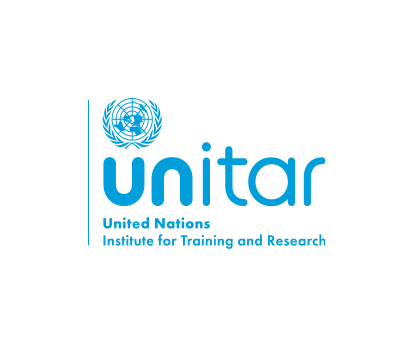
CIFAL Jeju - Education Without Borders: Shaping Quality Education for Refugees from Pre-Primary to Tertiary
Armed conflicts have persisted for what feels like an eternity in the Occupied Palestinian Territory, Ukraine, Myanmar, the Democratic Republic of Congo, and Sudan. Amid frequent humanitarian crises, climate-induced emergencies, crippling insecurity, and economic instability, the number of forcibly displaced and stateless people was estimated to have exceeded 130.8 million in 2024. The school-aged refugee population is estimated to stand at 14.8 million this year. This is particularly devastating for refugee children, who are at a critical stage for education. For girls, the lack of education is linked to a higher likelihood of adolescent pregnancy and early marriage, depriving them of the opportunity to shape their own futures. For boys, it results in an increased risk of engaging in dangerous behaviors and reduced access to the labor market, which can lead to a cycle of endemic poverty. Recognizing the severity of the situation, UNHCR has prioritized establishing equitable and sustainable inclusion of forcibly displaced and stateless children in national education systems, as outlined in its Refugee Education 2030 strategy , in alignment with the principles of the Global Compact on Refugees. Despite improvements in the capacity of national education systems through ongoing efforts, many challenges remain. the number of refugee children who remain out of school are still high. According to UNHCR data, during the 2022-2023 academic year, the average gross enrolment rates for refugees were 37% for pre-primary education, 65% for primary, 42% for secondary, and only 7% for tertiary education. Additionally, the shortage of teachers, insufficient and poorly equipped classrooms, lack of food resources, inadequate school supplies, and negative cultural perceptions of education all contribute to the lack of quality education. To tackle these challenges, UNHCR has implemented the DAFI (Albert Einstein German Academic Refugee Initiative) program since 1992 to provide scholarships for refugee students pursuing higher education. Additionally, UNESCO's Bridge Program serves as a model for supporting the educational needs of refugees and displaced youth, taking into account the specific contexts of each country. In this context, UNITAR CIFAL Jeju is organizing a workshop titled 'Education without Borders: Shaping Quality Education for Refugees from Pre-Primary to Tertiary.' This workshop is targeted at public officials in the education sector from the Asia-Pacific region, with the primary objective of raising awareness about the significance of a quality education system for forcibly displaced and stateless children, as well as enhancing capacity for drafting related legislation. The workshop will examine the current status of out-of-school children at the pre-primary, primary, secondary, and tertiary levels, key considerations for drafting legislation aimed at ensuring quality education for refugee children, best practices for empowering these children, and personal stories from refugee students and their teachers highlighting the impact of inclusive education.
After this event, participants will be able to Gain insights into the current status of out-of-school refugee children at pre-primary, primary, secondary, and tertiary levels, Learn key considerations for drafting effective legislation that ensures access to quality education for refugee children, including best practices and relevant international frameworks, and Explore successful strategies and best practices for empowering refugee children through education, including innovative programs and community engagement.
After this event, participants will be able to Gain insights into the current status of out-of-school refugee children at pre-primary, primary, secondary, and tertiary levels, Learn key considerations for drafting effective legislation that ensures access to quality education for refugee children, including best practices and relevant international frameworks, and Explore successful strategies and best practices for empowering refugee children through education, including innovative programs and community engagement.
[Session 1] (Pre-Primary and Primary) The Current Status of Out-of-School Refugee Children in the Asia-Pacific Region/[Session 2] (Pre-Primary and Primary) Key Considerations in Drafting a Bill for Inclusive Education for Refugees/[Session 3] (Pre-Primary and Primary) UNESCO’s initiatives to address the educational gap in the Asia-Pacific region through the ‘Bridge’ program/Stories from Teacher of Refugee Children/DAY2 [Session 5] (Secondary and Tertiary) The current state of limited access to higher education for refugee teenagers and young adults: Considerations for drafting a bill./[Session 6] (Secondary and Tertiary) UNHCR’s efforts to assist refugee students in pursuing higher education through DAFI scholarships/[Session 7] (Secondary and Tertiary) Success Stories that Empower Refugee Children/Stories from Refugee Children
The training will consist of lectures and presentations by experts, group activities, personal impact stories from refugee students and their teachers, and a field trip.
This event is open to: ● Public officials in the education sector from the Asia Pacific region, ● Teachers and NGO workers in the education sector for refugee children.

